Forough Farrokhzad
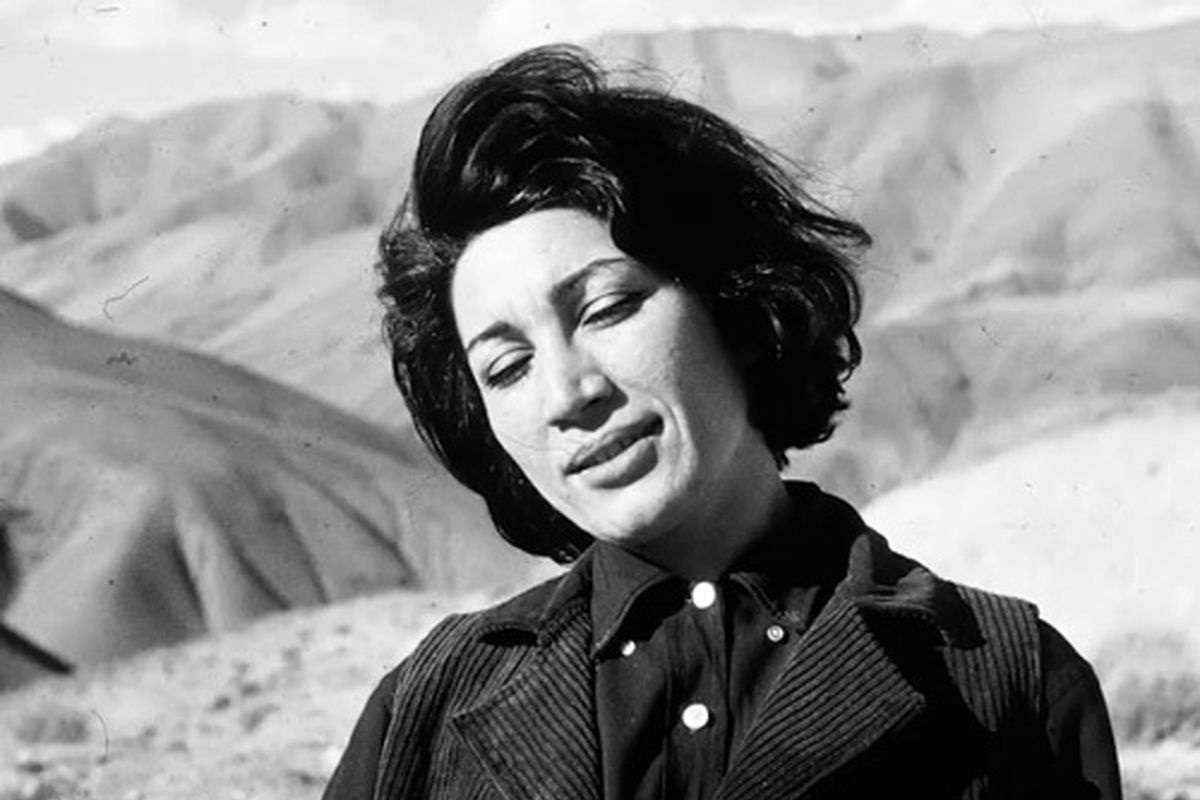
Tehran - TARNA: Forough Farrokhzad Without a doubt, she is among the most famous contemporary poets and the most renowned female poet in Iran. Her poetry began with a bold and feminine tone and quickly became a topic of discussion in society, but gradually matured into its unique voice, making Forough one of the influential poets of the contemporary era. Throughout her life in our society, Forough Farrokhzad faced censorship and public skepticism; it seems our traditional culture could not accept an enlightened and independent woman who dedicated her life to poetry and freedom. Since her untimely death, various materials about her life and poetry have been written and examined from different perspectives. In the forthcoming article, which is prepared in two parts, we take another look at the brief yet eventful life of this valuable poet.
Part
one, Childhood to a new birth
Childhood
and Adolescence
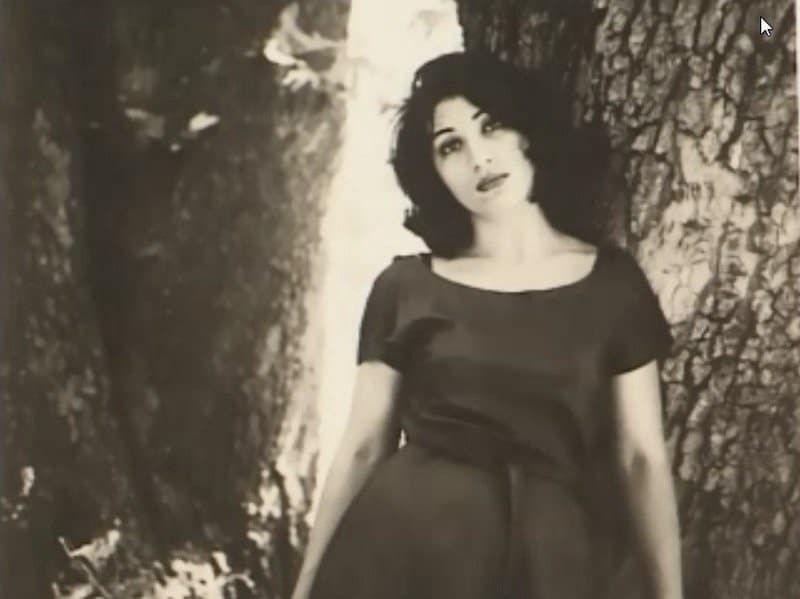
Forough
Farrokhzad was born on December 29, 1934, in the Amiriyeh neighborhood of
Tehran to a father from Tafresh and a mother of Kashani descent. She was the
fourth child of the family. Her father, Colonel Mohammad Farrokhzad, was a
strict military man. Forough says about her childhood: "From childhood, my
father accustomed us to what is called hardship. We slept in military blankets
and grew up, although there were also fine and soft blankets in our house. He
raised us with a specific method he had adopted in his parenting."
The
dictatorial and patriarchal regime that dominated their lives later led to
Forough's rebellion and defiance, as we have often heard described in her
personality as tradition-breaking, rebellious, and norm-defiant. As Forough
herself writes in one place: "Perhaps my father is not pleased to have an
impudent and self-willed daughter like me." Or in a letter she writes to
her father: "Father! Since I came to know myself, my rebellion and
defiance against life also began, I wanted and still want to be great."
-
Forough's childhood alongside her family
In a letter she sent from Munich to her father, she writes that if she were to express all her thoughts to him, it would become a book, but she fears he might be affected. "...My great pain is that you never knew me. And you never wanted to know me... I remember when I was reading philosophical books at home... You used to think I was a foolish girl whose mind had been corrupted by reading nonsense magazines, then I would crumble inside myself, and the tears would gather in my eyes from being so alienated at home, and I tried to choke... or a thousand other similar things, which might not be significant in themselves but are each enough to crush a person's spirit and individuality."
He
writes that his father could have guided his children with kindness, but instead,
he frightened them with his violence: "Often, my soul would tremble with
regret and remorse after making a mistake, and I wanted to come to you and tell
you what I had done, and ask you to advise me, but as always, I was scared and
felt estranged from you."
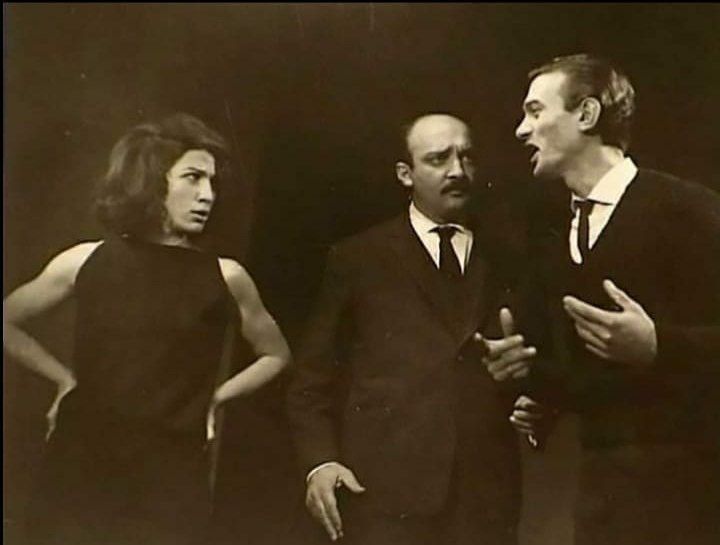
From
the beginning of her adolescence, Forugh had a great interest and talent in
poetry and writing. Her father would read poetry, and she listened with
interest to familiarize herself with literature. Forugh's talent in her teenage
years was such that her essay teacher couldn't believe she had written her
essays herself.
She
describes her adolescence: "When I was thirteen or fourteen years old, I
used to write a lot of ghazals and never published them... Sometimes, poetry
just naturally flowed from me. Two or three a day, in the kitchen, behind the
sewing machine, I just said them. I was very rebellious. I just kept saying
them. Because it was like a madness that I read behind the madness and was
filled, and after all, I had the talent, so I had to give back somehow."
Youth,
Poetry, Marriage, and Separation
Forugh
Farrokhzad fell in love with Parviz Shapour at the age of sixteen. Parviz was a
writer and journalist known for creating cariclatures, short writings (often
one-liners) with a poetic and humorous view. Besides cariclatures, Shapour was
also skilled in charcoal drawing.
Forugh's
mother and Parviz Shapour's mother were cousins, and Shapour often came to
Forugh's house with his mother, telling stories to her and her younger brother.
Shapour's calm, sensible, well-dressed, and humorous demeanor was attractive to
a teenage girl like Forugh, who lived in a strict and formal family. However,
from the beginning, everyone opposed the relationship due to the significant
age difference between Shapour and Forugh. As a result, the two turned to
letter writing, with Shapour using the pseudonym "Javad Shariaty"
(chosen by Forugh), exchanging letters through Cyrus Bahman (husband of Pouran,
Forugh's sister) and sometimes through Faridoun (Forugh's brother).
-
Forugh and Parviz Shapour
Eventually,
in 1951, after much back-and-forth, the two married. Pouran Farrokhzad
described the sixteen-year-old Forugh as "full of feeling, restless, and
crazy" who married Parviz Shapour, a "normal, logical, and calculating"
man. A year later, coinciding with the birth of their only child, Kamiar,
Forugh published her first collection of poems named "Asir" (The
Captive). It seems that from that year and that book, the differences between
the two began. The world of poetry and intellectualism that Forugh had entered
did not harmonize with the calm, family life she had.
Eventually,
in November 1955, Forugh and Parviz Shapour separated, and by law, Kamiar
stayed with Parviz. Parviz, using the child's well-being as a pretext, did not
allow Forugh to visit her son, and she never saw her son again for the rest of
her life.
Forough,
Parviz Shapour, and their son Kamiar
At
the outset of their separation, both Parviz and Forough expressed disdain and
disgust towards their marriage to each other. Forough, in a letter to Ebrahim
Golestan, regrets her marriage, writing: "That ridiculous love and
marriage at the age of sixteen destabilized the foundations of my future
life…" However, it seems that Forough always held respect and affection
for her first love. For a while after their separation, Parviz provided
financial support to Forough, and she, in turn, dedicated her collection
"The Wall" in 1956 by writing, "Dedicated to Parviz, in memory
of our shared past and with the hope that my modest gift can respond to his
boundless kindness."
According
to Emran Salahi, poet and close friend of Shapour and a childhood neighbor of
Forough: "In the letters she wrote to Parviz after their separation,
Forough is more in love than ever."
Forough's
letters to Parviz were later published by Forough’s son Kamiar and Emran Salahi
in a book titled "The First Heartbeats of My Heart." This book
includes 16 letters before marriage, 22 during their marriage, and 18 after
their separation until Forough was 21 years old. Even during Forough's trip to
Italy after their separation, they continued corresponding, and in these
letters, Forough constantly spoke of Shapour's kindness:
"…I
may not have been a good wife to you, but I hope you still accept my friendship.
Just as I still, and forever, see you as the only one I can truly trust and
share my pain with.
…I
swear to you by Kami's life, remembering the days we lived together, loved each
other, and now I regret even a moment of it—if I did wrong, forgive me. I have
changed, changed a lot. I was a child, and now life’s hardships have bewildered
me. Parviz, forget the past and write about Kami sometimes so I can at least
study here with a peaceful mind…"
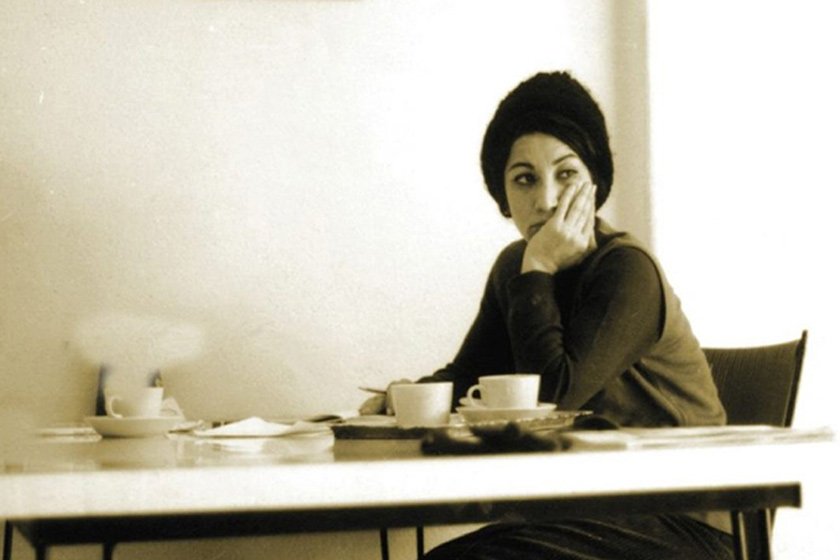
Some
time after Forough's trip to Italy, Parviz stopped responding to Forough's
letters, and their communication ceased:
"Parviz,
I have written at least ten letters to you that I haven't sent. I don't know
why? I thought you no longer loved me because you didn’t reply to my letters. A
few days ago, you sent me a book, and no matter how much I flipped through it,
hoping you had written something for me, there was nothing. I am deeply
saddened; you were supposed to write to me, we were supposed to be for each
other, but you either forgot me or didn’t deem me worthy to write me back
twice, but I always remember you…"
Forough
had to choose between Shapour, family life, and poetry, and dedicated herself
to one. As she writes: "That’s the issue. If you want to be a poet,
sacrifice yourself to poetry. Skip a lot of words and accounts. Set aside many
simple and satisfying happiness’s. Build a wall around yourself and inside this
environment start being born anew, shaping, thinking, and discovering different
meanings of different concepts… That's what I'm doing - but it is bitter - very
bitter. And it requires perseverance and capacity…"
Forough,
after separating from Shapour, returned to her family for a while but could not
live with them and, with the help of her friends, rented a house and continued
to live alone. Pouran, Forough's sister, says: "When her poem 'Sin' and
her other poems were published, poets and artists of her time gathered around
her, and my father was strongly opposed to Forough's actions. He said Forough
was bringing shame to our family and eventually threw her out of the
house."
During
Forough's separation, the footnote "Blue Blossoms" by Nasser Khodayar
was published in the Roshanfekr magazine. Nasser Khodayar was a friend of
Shapour who had stayed at Forough and Shapour’s house for a week. After
returning from Ahvaz, Khodayar began publishing the story of "Blue
Blossoms" in Roshanfekr magazine, which touched on aspects of Forough
Farrokhzad’s life. Forough was so angry about the publication of this story,
which was a result of Khodayar's stay at her home, that for a long time
afterwards, she always said, "I am painfully regretful and ashamed of this
incident. In my entire life, I only feel regret about this childish and foolish
affair."
After
this incident and considering the family issues, Forough was admitted to
Rezaieh Psychiatric Hospital. Nader Naderpour commented on this event:
"One morning, Fereydoun called me and informed me that Forough was upset
and had been taken to Dr. Rezaieh's sanatorium. When I asked the reason, he
said that Forough had developed severe mental distress due to the publication
of Nasser Khodayar's 'Blue Blossoms,' which had begun in Roshanfekr two weeks
earlier. He added that despite his insistence on Khodayar to stop the
publication, he did not agree, and Forough had been in an abnormal condition
since last night and we took her to the sanatorium today. Forough was
hospitalized for about a month, treated with insulin injections, while the
story of 'Blue Blossoms' continued to be published." However, Nasser Khodayar
later claimed that he had written the mentioned footnote two months before that
visit and that attributing it to Forough was a conspiracy by her sister due to
Khodayar’s negative portrayal in front of Forough.
Trip
to Europe:
In
July 1956, after the publication of the collection "The Wall,"
Forough went to Rome and after a seven-month stay in Italy, moved to Munich to
be with her older brother, Amir Masoud. Later in her memoirs, she wrote:
"The pressure of life, the pressure of the environment, and the chains
that were tied to my hands and feet, which I tried with all my strength to
stand against, had exhausted and distressed me. I wanted to be a 'woman,' that
is, a 'human.'"
In a
letter to her father: "...now why I have come here [Munich] and why I
endure the torment of hunger, homelessness, and a thousand other miseries, is
because I love home. I didn't want to walk aimlessly in the streets from
morning to night, bearing the fatigue and mental pressure of everyone's
conversation, just because I am a stranger at home and cannot identify myself
and have peace. Now I have come here ... I am free, the freedom that you were
afraid to give me."
In
August 1957, Forough returned to Tehran and settled in a rented house. "In
the summers, all these windows, which are now closed and dark, would stay open
and lit until late at night, and whenever I pass by them at any time of the
night, I am confronted by several pairs of curious and nosy eyes that seem to
impudently and insolently ask me: 'Where have you been until now?' They want to
see who I have returned home with and who has accompanied me to my house."
Getting
to Know Ebrahim Golestan: Forugh Farrokhzad's Entrance into Cinema and
"The House is Black"
In
September 1958, Forugh Farrokhzad became acquainted with Ebrahim Golestan.
Golestan, a director, storyteller, translator, journalist, and photographer
with a unique style, played a significant role in Forugh’s intellectual
development and transformation. Sadegh Chubak has said, "In my personal
opinion… Golestan’s influence and knowledge significantly contributed to
shaping Forugh’s personality… This is merely my personal belief. This by no
means diminishes Forugh’s own worth. I witnessed Forugh being drawn to reading
and good literature through Golestan, even showing interest…"
However,
Ebrahim Golestan does not quite agree: "... I absolutely do not believe
these statements; it is unfair! ... Well, a library catalog could do the same
for a requester. If it’s just to this extent, then I accept it! ... It’s
unfair. It’s an insult to her capabilities. I have no desire to hear such
interpretations. If I were such a capable alchemist that I could turn coal into
diamond… why would I neglect myself?..."
During
her continued association with Golestan, Forugh ventured into filmmaking; she
underwent a professional apprenticeship for sound recording and equipment
repair in Europe, prepared several documentary films for Golestan Film,
participated in and helped produce a film about a marriage proposal ceremony in
Iran, produced several advertising films, and had other joint experiences with
Golestan. Finally, she directed "The House is Black," about a leper
colony in Tabriz. The film was commissioned by the "Society for Assistance
to Lepers" in autumn 1962 and produced by Ebrahim Golestan at Golestan
Film Organization.
Forugh
and Filmmaking
In
an interview with Roshanfekr magazine on February 20, 1964, Forugh said about
the film: "In my view, this film is about the lives of lepers and at the
same time about life itself. It is an example of life in general. It is a
portrayal of being useless, isolated, and separate. Even healthy people outside
the leper colony might exhibit these psychological traits without having
leprosy. A young man aimlessly walking down the street is no different from the
young leper in the film continuously walking along the wall. This young man
also has pains that we are unaware of."
"The
House is Black"
"The
House is Black" won the award for Best Documentary at the Oberhausen
Festival in Italy in winter 1964. However, receiving this award was not
particularly significant to Forugh: "I was indifferent to the whole
affair. I had already taken the pleasure I should from the work. They might as
well give me a doll as a prize; what does a doll mean? A prize is just a kind
of doll. What matters is that I have confidence in my work and feel satisfied.
Now, if all the people in the world were to gather and, say, throw rotten eggs
at me, it wouldn’t matter. Without this personal assurance and satisfaction,
even if they dumped all the world’s festival awards into a tray and brought
them to me, they would be worthless."
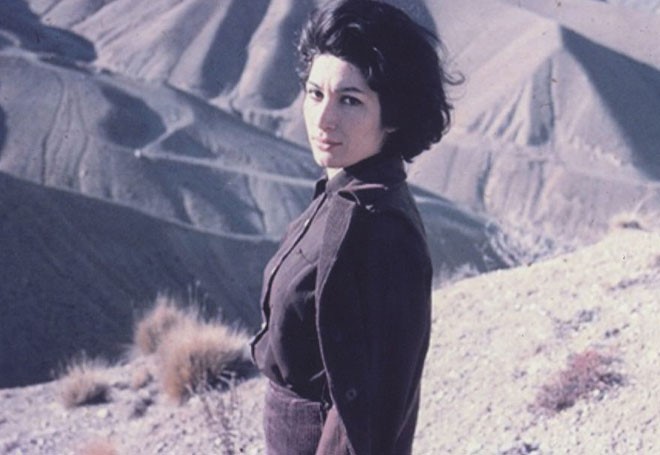
Forugh
in an interview about entering the world of filmmaking said: "[Cinema] is
a means of expression for me. Just because I have spent a lifetime writing
poetry does not mean that poetry is the only means of expression. I like
cinema, and I would work in any other field as well. If there was no poetry, I
would act in theater. If there was no theater, I would make films. Whether I
continue depends on whether I have something to say, of course, if I have
something to say."
In
the late winter of 1963, the collection "Another Birth," comprising
35 poems from the years 1959 to 1963, was published by Morvarid Publications.
In the "Instead of a Preface" section of the book, there is a
dedication that simply states: "To E. G.," followed by a verse from
the poem "Another Birth." The collection "Another Birth"
revealed a new facet of Forough's poetry and her capabilities. The depth and
transformation in the poet's thinking in this collection are clearly
discernible; to such an extent that Mehdi Akhavan-Sales writes about it,
"I believe that 'Another Birth' was not only a rebirth for Forough but
also a fortunate birth for the vibrant and progressive contemporary Persian
poetry and a fresh rebirth for Persian poetry itself."
End Item/
Labels: TARNA POETRY ARTNEWS NEWS IRAN FEMALE POET Forough Farrokhzad DIVAR BOOK contemporary Persian poetry